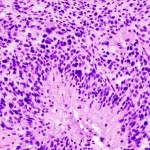The US Food and Drug Administration (FDA) and ImmunoCellular Therapeutics have agreed on a Special Protocol Assessment (SPA) for the latter’s upcoming Phase 3 trial of its ICT-107 product candidate in newly diagnosed glioblastoma multiforme (GBM).1
An SPA is a written agreement between a drug manufacturer and the FDA regarding clinical trial design (clinical endpoints, size, statistical methodology, etc.). An SPA endorsement from the FDA constitutes, by extension, a de facto endorsement of the clinical trial protocol being reviewed. The SPA process is designed for Phase 3 trials whose data will form the primary basis for biologic licensing application (BLA) or new drug application (NDA) efficacy claims. Final marketing approval of prospective therapies, of course, remains contingent on the actual results of their respective Phase 3 investigations. 2,3
Pharmaceutical companies are not required to reach an SPA agreement with the FDA, nor are they required to comply with the FDA recommendations furnished therein. Indeed, SPA is initiated solely via company request. However, due to the investments of time and money demanded to facilitate late-stage research, manufacturers are highly incentivized to submit to SPA oversight and advice as a means of markedly mitigating the inherent risks associated with new drug development.3
Rare Brain Cancer Results in Rapid Mortality
GBM is an extremely aggressive form of brain cancer which kills most of its victims within 1 year. There are no long-term survivors of GBM, which affects approximately 2 to 3 of every 100,000 Americans. Current treatment modalities are aimed at improving quality-of-life and mitigating symptoms.4-7
The oncologic condition is caused by abnormalities in star-shaped brain cells called astrocytes. When healthy, these cells form glue-like supportive tissue which functions to support, protect and nourish neurons and form scar tissue that helps repair injury-related brain damage. Malignant astrocytes are no longer capable of functioning in a normal manner. These cancer cells then transfer abnormalities to all of their offspring, which reproduce at such a prolific rate that they cannot be regulated or contained by the body’s immune defense response.4-7
ICT-107, is an experimental dendritic cell-based immunotherapy which works to target multiple tumor-associated antigens.1
CEO Touts Progress, Sets Phase 3 Deadline
Andrew Gengos, President and Chief Executive Officer, ImmunoCellular, stated, “We are pleased to have achieved this important milestone, and think that successful completion of the SPA process adds meaningful validation to the ICT-107 Phase 3 program and design, especially the use of the gold-standard primary endpoint of overall survival. With this SPA in place, we think that ICT-107 is uniquely positioned in the field of immuno-oncology approaches being tested in glioblastoma. We are making significant progress toward establishing our clinical site network and obtaining the necessary institutional review board approvals. We are confident that we are on track to begin patient enrollment in the late third quarter or early fourth quarter of this year.”
The Phase 3 trial in question is an international, (120-site) multi-center, randomized, double-blind, placebo-controlled study of roughly 400 human leukocyte antigen (HLA)-A2 positive subjects.1 HLA-A2 is, in many ethnic groups, the predominant GBM subtype.8 HLA’s are cell-surface antigen-presenting proteins that introduce tumor-associated antigens to T-cells, thereby inducing the immune response to ICT-107.9 Overall survival – which the FDA supports as the principal metric for all clinical GBM evaluation – has been established as the primary endpoint of the investigation. Secondary endpoints include progression-free survival and safety.1
Phase 3 plans for ICT-107 were driven in part by the positive outcomes generated by the agent in Phase 2. ImmunoCellular has (in December of 2013, June of 2014 and November of 2014) reported results from its ongoing Phase 2 program which have repeatedly demonstrated the statistically-significant efficacy benefits of ICT-107 compared to placebo in terms of both progression-free survival and numeric overall survival.9
The Immuno-strategic Basis of ICT-107
ImmunoCellular is a dendritic cell (DC)-based immunotherapeutic cancer treatment candidate. DCs are a class of cells which are responsible for processing and introducing antigens to the immune system; they play a key role in immune response to cancer. However, cancer may suppress immune response, making DCs unable to process and present antigens to T cells for liquidation. Data suggest that activated DC-based agents like ICT-107, produced from each patient’s own cells, can overcome said suppression and stimulate a highly potent anti-tumor immune response.
ICT-107 works by targeting multiple antigens, including cancer stem cells (a small, treatment resistant subclass representing roughly 5% of cancer cells that is believed to play a pivotal role in oncogenesis and tumor propagation). According to its manufacturer, this approach increases efficacy probability rates via the sealing off of adaptive tumor escape mechanisms which have been observed to occur when a single antigen is targeted.10
References
- ImmunoCellular Therapeutics Reaches Agreement with FDA on Special Protocol Assessment (SPA) for ICT-107 Phase 3 Registrational Trial in Glioblastoma [press release]. Los Angeles, California. ImmunoCellular Therapeutics, Ltd. Aug. 13, 2015. http://finance.yahoo.com/news/immunocellular-therapeutics-reaches-agreement-fda-100000647.html?soc_src=mail&soc_trk=ma
- US Food and Drug Administration Center for Drug Evaluation and Research (CDER). Guidance for Industry – Special Protocol Assessment. http://www.fda.gov/downloads/Drugs/Guidances/ucm080571.pdf Published May, 2002. Updated May 4, 2011. Accessed online August 20, 2015.
- LaMattina J. Should the FDA Force Drug Makers to Discuss Their Clinical Trials? http://www.forbes.com/sites/johnlamattina/2014/12/01/should-the-fda-force-drug-makers-to-discuss-their-clinical-trials/ Forbes Published December 1, 2014. Accessed online August 20, 2015.
- Holland EC. Glioblastoma multiforme: The terminator. Proc Natl Acad Sci 2000;97(12):6242–6244. http://www.ncbi.nlm.nih.gov/pmc/articles/PMC33993/ Accessed online August 20, 2015.
- National Organization for Rare Diseases website. Glioblastoma Multiforme. https://rarediseases.org/rare-diseases/glioblastoma-multiforme/ Accessed August 20, 2015.
- National Center for Advancing Translational Sciences/Office of Rare Diseases Research website. Glioblastoma. https://rarediseases.info.nih.gov/gard/2491/glioblastoma/resources/1 Updated January 19, 2015. Accessed August 20, 2015.
- American Brain Tumor Association website. Glioblastoma. http://www.abta.org/brain-tumor-information/types-of-tumors/glioblastoma.html?referrer=https://www.google.cz/ Accessed August 20, 2015.
- Wu AH, Hall Wa, Low WC. Identification of HLA a*0201 glioblastoma multiforme cell lines for immunotherapy by PCR-SSP and DNA sequencing. J Neurooncol 2004;66(1-2):1-8.
- ImmunoCellular Therapeutics Presents Updated ICT-107 Phase II Data at the Society for Neuro-Oncology Annual Meeting 2014 [press release]. Los Angeles, California. ImmunoCellular Therapeutics, Ltd. November 14, 2014. http://investors.imuc.com/releasedetail.cfm?releaseid=883028
- ImmunoCellular company website. Dendritic Cell-Based Therapeutics. http://www.imuc.com/technology/dendritic-cell-based-immunotherapeutics Accessed August 20, 2015.
